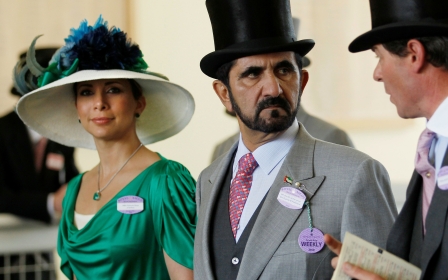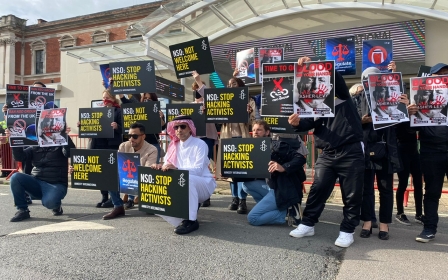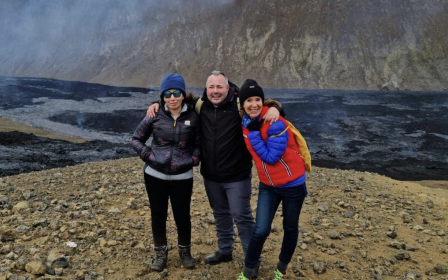Princess Shamsa: Campaigner calls for public inquiry into Dubai royal's kidnapping
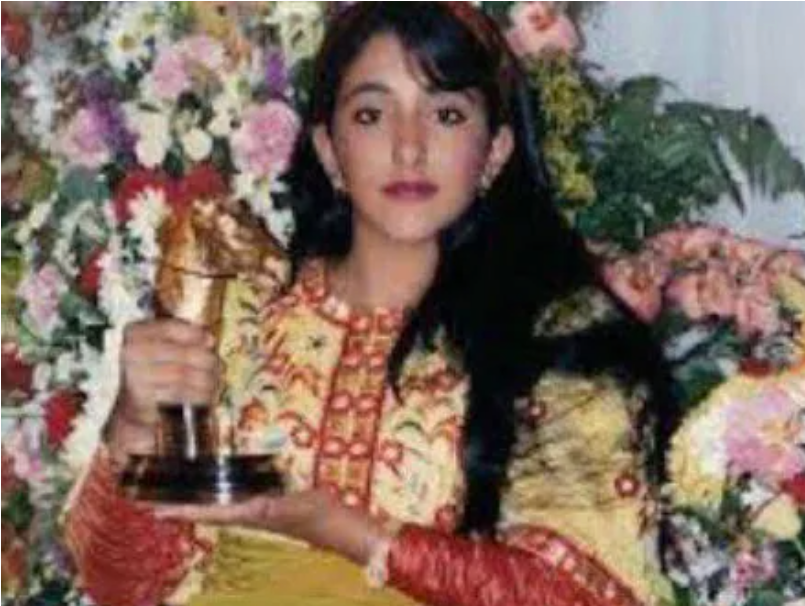
A campaigner who says he has new evidence relating to the kidnapping of an Emirati princess in the UK is calling for a public inquiry into why police halted their investigation into her disappearance.
Sheikha Shamsa al-Maktoum is said to have fled her family in 2000 while she was studying in the UK, only to be recaptured by Emirati agents from a busy street in Cambridge, sedated and then taken by helicopter out of the UK and returned to Dubai. She is still believed to be held captive.
A High Court judge ruled last year that her father, Dubai ruler Sheikh Mohammed bin Rashid al Maktoum, abducted Shamsa, as well as her sister Latifa, who attempted to flee the UAE on a yacht in 2018 before it was stormed by Indian and Emirati forces and she was forcibly returned.
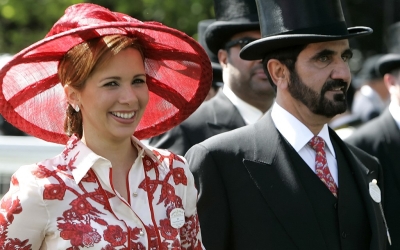
Earlier this week, the Dubai ruler came under renewed pressure as a High Court judge found that he hacked the phone of his ex-wife and five of her associates, including a member of the House of Lords, using NSO Group's controversial Pegasus spyware.
Now David Haigh, who has campaigned for Latifa's release, and his London-based law firm Bindmans, say he has "crucial new" evidence into Shamsa's kidnapping, which will be presented to Cambridgeshire police.
They are also calling for a public inquiry into why the Cambridgeshire police halted their investigation into the princess' disappearance in 2000.
Princess Latifa, Shamsa's younger sister, has also called for the police to reopen their investigation in a handwritten letter, dated from 2018. Haigh's advocacy group, Detained International, passed the letter to the police force this February.
"All I ask of you is to please give attention on her case because it could get her her freedom... your help and attention on her case could free her," the letter reads.
"She really loves England. All of her fondest memories are of her time there."
Police attempts to travel to UAE
Haigh said in a statement: "A brazen offence has been committed on a British street. It's astonishing that this case hasn't been solved after more than 20 years, but credit to the police for not giving up. They can rely on us for all the help and evidence we can give to bring the kidnappers to British justice."
During the acrimonious custody battle over Sheikh Mohammed and Princess Haya's children last year in the UK, it was revealed in court that the Cambridgeshire police had attempted to travel to the UAE to follow up on their investigation into Shamsa's kidnapping, but were blocked by prosecutors.
'Your help and attention on her case could free her'
- Princess Latifa, in 2018 letter to police
The court heard the UK foreign office received freedom of information requests about the matter, which were refused on the grounds that such information could harm relations with friendly foreign countries.
Cambridgeshire Constabulary told MEE on Friday that Haigh and Bindmans had yet to present the new evidence to the force, but that arrangements were being made for that to happen.
As of now, a constabulary spokesperson said the police had carried out "a detailed and exhaustive review" into Princess Shamsa's abduction but "regrettably we are not in a position to take any further action at this time".
"New lines of inquiry were pursued in what has been a uniquely challenging and complex case, however, there remains insufficient evidence to reopen the investigation," the constabulary wrote in an email.
"As with all cases, it could be reopened, should we receive significant and substantial new evidence."
The spokesperson also said that evidence available to the force during the investigation in 2001 was "insufficient to take any further action". A review of the investigation also took place in 2017 and that was concluded, he said.
MEE asked the constabulary how important going to the UAE would have been for the investigation in 2001 and, if the case were reopened, whether it would be possible to send police now.
The spokesperson responded: "There are details of the case that are inappropriate to discuss publicly due to this being an incredibly complex and serious matter. The welfare of individuals is our primary concern and it would be inappropriate to share publicly details in relation to this investigation."
Earlier this week in response to the phone hacking ruling, Sheikh Mohammed said: "I have always denied the allegations made against me and I continue to do so. These matters concern supposed operations of state security".
“As a head of government involved in private family proceedings, it was not appropriate for me to provide evidence on such sensitive matters either personally or via my advisers in a foreign court. Neither the Emirate of Dubai nor the UAE are party to these proceedings and they did not participate in the hearing. The findings are therefore inevitably based on an incomplete picture.
“In addition, the findings were based on evidence that was not disclosed to me or my advisers. I therefore maintain that they were made in a manner which was unfair.”
Middle East Eye delivers independent and unrivalled coverage and analysis of the Middle East, North Africa and beyond. To learn more about republishing this content and the associated fees, please fill out this form. More about MEE can be found here.


